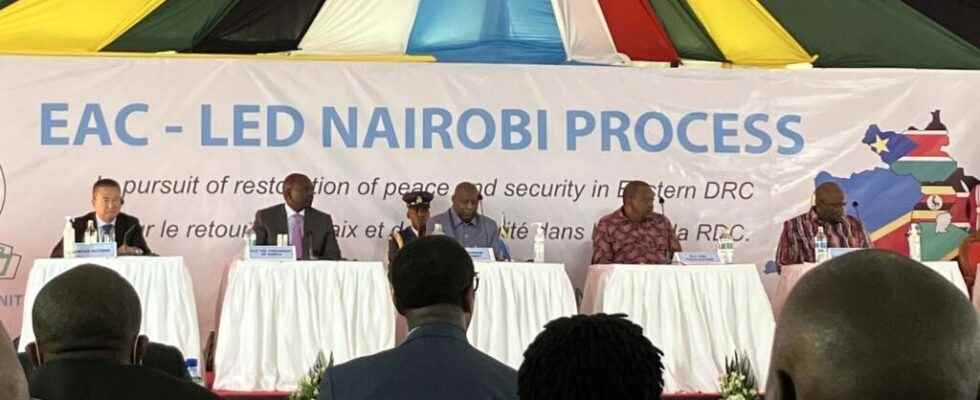DRC peace talks continue in Nairobi, Kenya. After the launch ceremony on Monday, a delayed start and a suspension of talks on Thursday, work is now in full swing. The participants established Friday, December 2 their demands to cease hostilities, some deploring representatives of armed groups are not represented. Like the M23, which did not respect the conditions of the Luanda communiqué, according to Kinshasa.
With our correspondent in Nairobi, Albane Thirouard
On Friday, the participants worked in groups, divided by territory, each in different hotels: They were able to reflect on the needs and priorities to enable peace in eastern DRC.
Armed groups set out their conditions for a cessation of hostilities, many call for the release of prisoners as well as amnesty for their members. Serge Tshibangu, the Congolese president’s representative for this Nairobi process, however said on Wednesday that it would not be automatic with the laying down of arms.
Some also deplore the absence of other armed groups. The Union of Patriots for the Liberation of Congo (UPLC), a militia which operates in the north of the province of North Kivu, explains in particular that it does not want to lay down its arms as long as the ADFs won’t have done it.
The Congolese presidency calls on armed groups to cease hostilities, allow unimpeded humanitarian access, and join the Disarmament, Demobilization and Community Recovery and Stabilization Program (PDDRCS).
Saturday, December 3, all participants must meet to share Friday’s work and bring out an action plan to bring peace to eastern DRC.
Among the approximately 200 participants, the delegation of the Banyamulenge community announced the suspension of its participation in the discussions this week, denouncing an attack by several armed groups in Banyamulenge villages on November 30. Other members of the delegation representing South Kivu denounced this choice, reaffirming their commitment to dialogue.
► Read also: DRC: convictions multiply after a massacre of civilians in North Kivu
